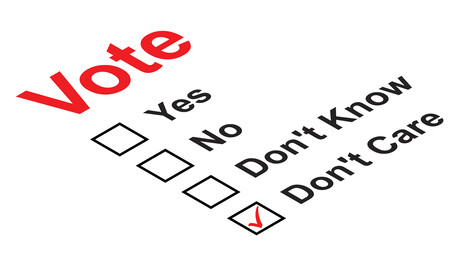Every now and then I catch myself slipping into the role of curmudgeon, muttering about things I dislike:
Supermarket express-line crashers who can't count to 15
Drivers who religiously run red lights
People addicted to long, loud cell phone conversations
Public prayers that extend into sermons
Political pundits who pontifically promise.
Some of you are already resonating. There's plenty of fuel to keep us piously peeved for a long, long time. It's a sin so easy to savor—cursing the darkness. But in doing so, we retreat into shadows of our own making.
This tendency to dwell deliciously on our dislikes stamps a likeness on our lives and proves again the adage that we become like what we behold. It's not so harmless after all.
Stephen Covey, popular motivational author and speaker, talks about what he calls the six metastasizing cancers of criticizing, complaining, comparing, competing, contending and cynicism. Certainly true evils must be decisively countered. Constructive criticism, when offered with a helpful intent, can mend a multitude of misunderstandings. But as a cherished attitude of life, criticism merely eats the bearer alive.
I see letters sometimes from Adventist members that would curl your toenails, and I wonder how their critical, cancerous attitude first took hold.
What determines whether a person will become sweeter as the days go by, or not? Does the aging process soften rough edges? I'm inclined to think otherwise—that the passing years only confirm and sharpen character traits cultivated all along. Old, bitter curmudgeons become that way through faithful practice, fermenting the injustices of the world into a bitter stew that scars not only their outward expression but their very souls. "For out of the abundance of the heart, the mouth speaketh" (Matthew 12:24).
So, it's time for a long look at myself, for I want my attitudes, my life, to leave a very different legacy.
As I ponder this election year, I'm looking beyond politics—toward something far more permanent.
It's my choice to leave the banter of political ads, debates and tabloid television to others. I'd rather follow the advice seldom found on "the tube" but often in Scripture:
"Finally, brethren, whatsoever things are true, whatsoever things are honest, whatsoever things are just, whatsoever things are pure, whatsoever things are lovely, whatsoever things are of good report; if there be any virtue, and if there be any praise, think on these things" (Philippians 4:8).
Righteous indignation has its place. But instead of just complaining, take the next step: Become part of the solution.
The best way to dispel the darkness is to shine a light.
Curmudgeons become that way through faithful practice, fermenting the injustices of the world into a bitter stew that scars not only their outward expression but their very souls.







